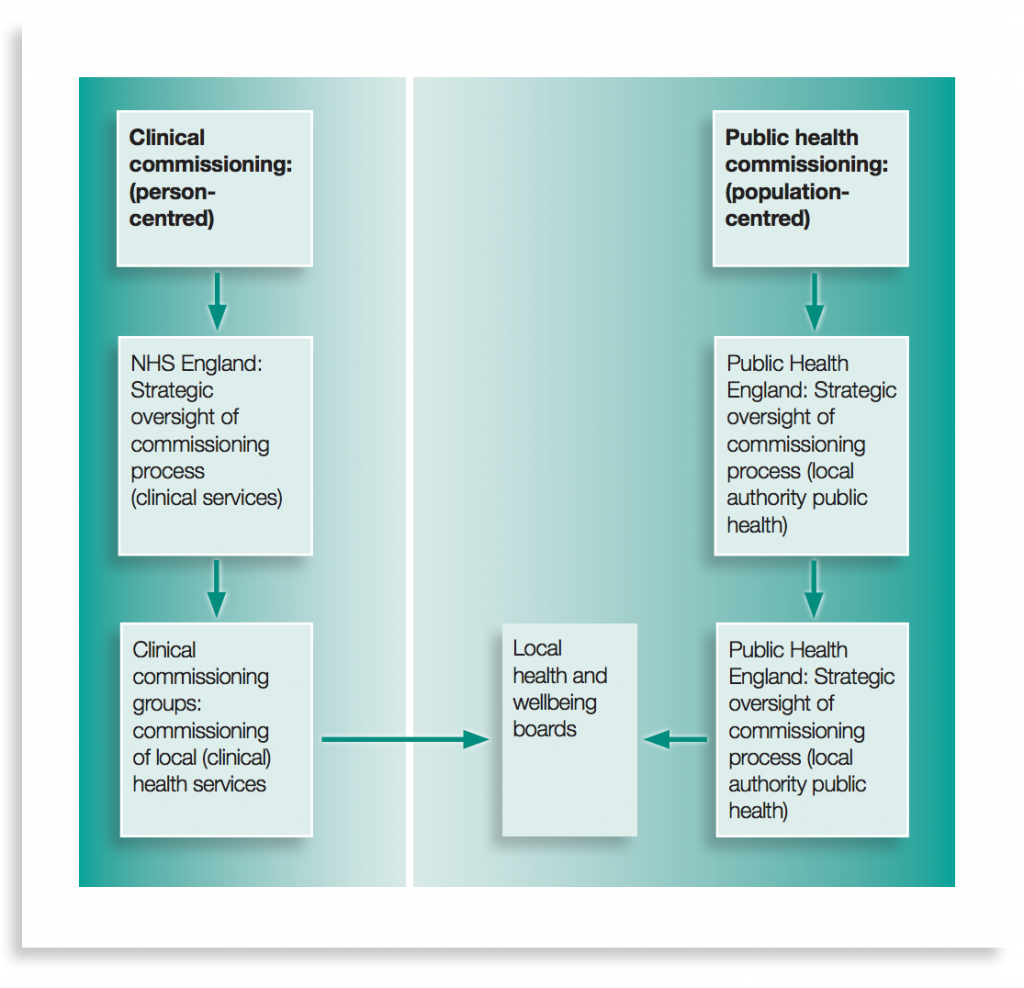
There has been much change in the NHS over the last few years, and now on top of the reorganisations, Trusts are having to operate more efficiently, while maintaining and improving the quality of the service delivered. Public health departments are now hosted by local authorities, and together with the Health and Wellbeing Boards, they decide on the local health priorities and actions.
A new report published by the Royal Society for Public Health in May builds on the following important documents:
- Fair Society Healthy Lives (The Marmot Review) (26MB, PDF)
- Healthy Lives, Healthy People (PDF)
- A plain English guide to the Localism Bill (PDF)
Inequality
People are living longer, and this will put a strain on health and social care, and so the key focus is preventing or delaying the early onset of illness, and to encourage the nation to be active and to take more responsibility for their health.
However, the report refers to a graph in the Marmot Review, which shows how people in deprived areas are more likely to die earlier due to chronic illness, and because of their economic situation, it is important that commissioners bear this in mind and strongly consider focusing their activities on levelling out the inequalities between deprived and lesser-deprived areas. This would give everyone an equal chance at preventing illness or being diagnosed early so that they can have a fair chance at returning to their normal, healthy lives, and live longer.
Early prevention and diagnosis, not only benefits the patient, but it significantly lessens the demands on reactive health services, such as emergency care, which will improve the levels of cost and quality.

People in deprived areas are more likely to die earlier due to chronic illness.
Commissioning options
The guide reminds commissioners to be aware that there may be several options available when working towards health improvement. Often they focus on targets set for the population as a whole, when in reality, we need to look at the local activities, local habits, which might be having an impact of the health of the local community.
Commentary
This guide is most relevant to commissioners, providers, local authorities, people working in health improvement, and public health practitioners. Usefully, it has a brief outline on using it effectively, depending on your needs. It includes:
- Descriptions of the processes involved and how to commission effectively
- Directions to the resources that you will need
- Flowcharts and diagrams providing technical guidance – including one (see figure 1 below) which shows who does what for health improvement with regards to public health commissioning in England
- Guidance on avoiding harm to the public

Figure 1: Public health commissioning in England – who does what for health improvement
There is also a list of public health areas which:
Are designated as local authority public health commissioning responsibilities, including, obesity, sexual health services, immunisation and screening and tobacco control.
Looking at these areas, are any of them priorities in your area?
How to use the guide
Together with your teams, take a look through the guide and see which areas will be most useful to you in terms of reducing health inequalities and improving health and wellbeing in your area. Ideally you will use the whole guide, but realistically, there may be some areas where you are weaker and you can use the guide to help fill some gaps in your team’s knowledge and experience.
Link
The RSPH guide to commissioning for health improvement (PDF). Royal Society for Public Health, May 2014.
Related documents
Marmot, M. Fair Society Healthy Lives: The Marmot Review. Strategic review of health inequalities in England (26MB, PDF). The Marmot Review, Feb 2010.
Healthy Lives, Healthy People: Our strategy for public health in England (PDF). HM Government, CM7985, Nov 2010.
A plain English guide to the Localism Bill (PDF). Department for Communities and Local Government, Jun 2011.


Commissioning for health improvement can help tackle health inequalities via @CommissionElf http://t.co/dbINHUDNUE